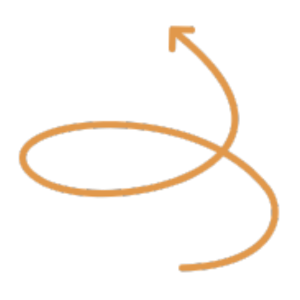Why Do I Crave Sugar When I Stop Drinking?

If you've ever attempted to cut back or quit alcohol, you’re probably familiar with an unexpected new craving: sugar.
While your alcohol cravings may lessen sooner than expected, what you didn’t prepare for was the overwhelming desire for sweets.
As a doctor of nutrition who helps people in their sober and sober-curious journeys, sugar cravings are one of the most common challenges my clients face. They often describe their cravings as intense and uncontrollable, influencing their eating habits in ways they never imagined.
I’ve been there too. In my own sobriety journey, I often talk about how I hadn’t touched an ice cream cone in a decade—until I got sober. During the summer of 2021, that sweet treat became my new obsession as I navigated my early months of sobriety.
Why Does This Happen?
There are a few key reasons why sugar cravings spike during alcohol reduction or cessation:
-
Dopamine Deficiency: Alcohol stimulates a surge of dopamine in the brain, creating a sense of pleasure and reward. When you cut out alcohol, your dopamine levels drop, and your brain starts seeking out other quick sources of pleasure—like sugar.
-
Blood Sugar Imbalances: What’s less commonly discussed is the connection between alcohol use and blood sugar regulation. Regular alcohol consumption can lead to hypoglycemia (low blood sugar), which triggers cravings for sugar, carbs, and sometimes alcohol itself. When your blood sugar drops, you may also experience symptoms like fatigue, irritability, and that “hangry” feeling we all know too well.
The good news? This is a normal reaction as your body adjusts to the chemical changes of sobriety. You’re not alone in this!
What Can You Do?
While these cravings can feel overpowering, the great news is that you can manage them through simple food and nutrition swaps to stay on track in your alcohol-free journey. Balanced eating and healthy substitutes can make all the difference in curbing those sugar urges and maintaining your motivation.
Here are my expert nutrition recommendations to kick sugar and alcohol cravings:
-
Incorporate Protein at Every Meal:
Protein helps stabilize blood sugar and reduce the chances of entering a low-blood-sugar state where cravings can strike. Aim for 10-15g of protein per snack and at least 20g per meal. Lean meats (like chicken and turkey), fish, eggs, beans, and dairy are great sources of protein.
-
Eat A Meal or Snack Every 3-4 hours:
Regular meals and snacks keep your blood sugar stable, reducing the likelihood of cravings for both sugar and alcohol. I recommend a balanced afternoon snack between 3-5 pm, a common trigger time for alcohol cravings.
-
Avoid Intermittent Fasting (IF):
While intermittent fasting can work for some, it may worsen cravings if you're prone to hypoglycemia. During the early stages of your alcohol-free journey, focus on consistent meals. A protein-rich breakfast within one hour of waking helps set the tone for balanced blood sugar throughout the day.
-
Try L-Glutamine Supplements:
L-glutamine, found in my Craving Crusher supplement, can be a game-changer in managing sugar and alcohol cravings. When cravings strike, try taking a small dose (500mg) of L-glutamine powder under the tongue to reduce the urge.
Can I indulge in some sugar?
Yes, it's okay to enjoy some sweets! If it helps you avoid an alcohol craving, don’t stress. I suggest incorporating protein around the time you indulge or having sweets directly after a meal to minimize the blood sugar spike.
Are you looking for support to stay alcohol-free?
Learn more about gaining support on your alcohol-free and health goals. Join our members-only community, enroll in our self-guided course, or get supplements to lower cravings and improve your energy and mood.






